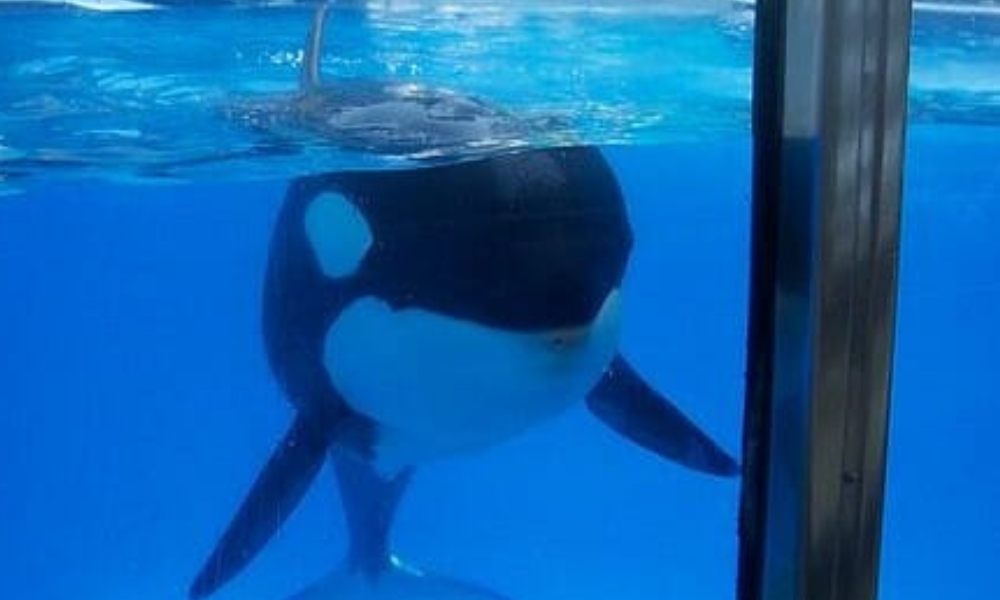An orca named Kiska who was abducted from her family in Iceland over four decades ago just died at Marineland in Canada after spending the last 11 years alone in a tank, according to news reports.
Known as “the loneliest whale in the world” to animal advocates, Kiska was captured from her ocean home in 1979 when she was an estimated three years old and spent the last 44 years swimming in endless circles in a small, concrete enclosure before her death, according to news reports.
Her life in captivity was marred by tragedies, including reportedly losing all five of her calves before they reached seven years old, one of whom reportedly died after just two months of life. In 2011, her sole tank mate, Ikaika, was transferred to Sea World-San Diego, leaving Kiska alone in her tank for more than a decade.
Drone footage taken before her death shows Kiska floating listlessly in her barren enclosure, and a separate video from September 2021 shows her bashing her head against a glass wall on the side of her tank over and over again, in apparent distress.
Marineland did not respond to media inquiries prior to publication of this story. The park previously told the Niagara Falls Review that Kiska’s health had declined drastically “despite intensive interventions.” The park’s owner reportedly also has not responded to numerous other inquiries about Kiska’s death from other renowned outlets.
Kiska was the last living orca in Canada. Her death marks the end of orca captivity in the country, as Canada banned whales and dolphins in captivity in 2019. Sadly, Kiska was forced to remain at Marineland until she died, as her captivity was not covered in the 2019 legislation.
Sadly, orca captivity and exploitation is continuing elsewhere — including in the United States. It’s critical that more is done to send the message that orcas are not here for people’s “entertainment.”
Orcas are incredibly social animals who live in groups called pods and stay with their mothers and immediate family for life. They can travel 100 or more miles per day in the wild and swim up to 30 miles per hour. These complex and sensitive animals are denied everything that is natural and important to them when they’re forced to live in captivity for people’s “amusement.”
You can help other orcas like Kiska today by signing our petition urging U.S. legislators to pass the Strengthening Welfare in Marine Settings (SWIMS) Act, which would prohibit the breeding, importing, exporting, and wild capture of orcas, as well as beluga, pilot, and false killer whales.
And please remember to NEVER visit any marine mammal park that exploits orcas – or any animal – for profit and “entertainment” and urge your friends and family to do the same.







